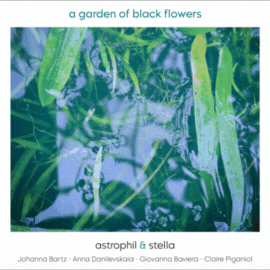 None but the Lonely Heart; Piotr Tchaikovsky: Violinkonzert op. 35 + Kuda, kuda, vi udalilis (Eugen Onegin) + None but the Lonely Heart (6 Romanzen op. 6) + Melodie & Meditation (Souvenir d'un lieu cher) + Valse sentimentale für Violine & Klavier + Valse-Scherzo op. 34 für Violine & Orchester; Daniel Lozakovich, Violine, Stanislav Soloviev, Klavier, National Philharmonic Orchestra of Russia, Vladimir Spivakov; 1 CD Deutsche Grammophon 4836086; Aufnahme 04/2019, Veröffentlichung 18/10/2019 (66'30) - Rezension von Remy Franck
None but the Lonely Heart; Piotr Tchaikovsky: Violinkonzert op. 35 + Kuda, kuda, vi udalilis (Eugen Onegin) + None but the Lonely Heart (6 Romanzen op. 6) + Melodie & Meditation (Souvenir d'un lieu cher) + Valse sentimentale für Violine & Klavier + Valse-Scherzo op. 34 für Violine & Orchester; Daniel Lozakovich, Violine, Stanislav Soloviev, Klavier, National Philharmonic Orchestra of Russia, Vladimir Spivakov; 1 CD Deutsche Grammophon 4836086; Aufnahme 04/2019, Veröffentlichung 18/10/2019 (66'30) - Rezension von Remy Franck

Mein Gott, wie das alles singt und schwebt…. Im ersten Satz des Violinkonzerts überzeugt der junge Geiger Daniel Lozakovich schon mit seiner phänomenalen Technik und blitzblankem Spiel, das sich aber nie in purer Virtuosität erschöpft, sondern die großen melodischen Linien pflegt und zusammen mit Spivakovs klugem und einfühlsamen Dirigat von jener typisch romantischen Agogik des Drängens und Verlangsamens lebt, von einer perfekten Beherrschung der Dynamik auch, in der nicht alles sich zwischen laut und sehr laut bewegt, sondern auch bis zum Pianissimo reicht und diese Dynamik auch zusammen mit dem Rubato für ein sensibles und bewegendes Gestalten gebraucht. Und dann dieser Geigenton: elegant, voll, warm über die ganze Bandbreite, von den tiefsten bis in die obersten Lagen!
Die Canzonetta wird nicht nur gesungen, sie wird mitunter nur geflüstert, all jene Melancholie aufsaugend, die Tchaikovsky in seine Musik hineinkomponierte.
Spivakov setzt schöne Farbtupfer im Orchester dahinter. Bezaubernd!
Richtig frisch und ungestüm geht es dann im Allegro vivacissimo zu, aber nicht ohne Singen, nicht ohne die Schwermut, die die Musik in ihren zurückhaltender Passagen prägt.
Für einen 18-Jährigen ist das eine mehr als meisterhafte Leistung. Die stupende Technik verbindet sich bei dem 2001 in Schweden geborenen Geiger russischer Abstammung mit dem, was man ‘russische Seele’ nennt und so schwer zu beschreiben ist.
Die kleineren Tchaikovsky-Stücke spielt Lozakovich mit demselben Gespür für diese Gefühlswelt, die Mikhail Glinka einmal als extrem beschrieben hat: « Wir kennen nur die leidenschaftliche Lustigkeit oder die bitteren Tränen. Die Liebe ist bei uns immer mit Traurigkeit verbunden. Unsere melancholisches russisches Lied ist eine Tochter des Nordens, ganz gewiss, aber auch ein wenig orientalisch… », während Mussorgsky hinzufügte, dass die Melodie immer unmittelbar von den Sinnen motiviert ist. Gerade bei Tchaikovsky gilt das, und wenn er sich in einem Brief an seine Gönnerin Natacha von Meck als ‘Heulpeter’ bezeichnet hatte, so ist dieser Komponist, der zeitlebens gegen das Fatum kämpfte, in seiner Musik doch alles andere als weinerlich. Seine latente Traurigkeit hat eine total ehrliche Musik geboren, den Sinnen entwachsen, wie Mussorgsky es formulierte, und Tchaikovsky selber hat sich dazu in einem Brief an Frau von Meck folgendermaßen geäußert: « Ihr Vergleich zwischen Musik- und Weinrausch missfällt mir enorm, und jede Annäherung erscheint mir unmöglich. Der Mensch trinkt, um sich selbst zu täuschen, um sich selbst die Illusion von Glück, von Zufriedenheit zu geben. Und es kostet ihn viel Geld. Die Reaktion ist schrecklich! Sicherlich bietet der Wein ein momentanes Vergnügen, aber so flüchtig! Ist das bei der Musik der Fall? Sie ist nie eine Illusion, sondern eine Offenbarung. Wenn sie triumphiert, liegt es daran, dass sie uns etwas Schönes offenbart, das sonst unzugänglich ist, uns ein Gefühl erleben lässt, das nicht vorübergehend, sondern endgültig ist – etwas, das eine permanente Versöhnung mit dem Leben darstellt. Musik ist scharfsinnig, sie ist glücklich. Es ist schwierig, das Vergnügen zu analysieren, das sie bietet. Es hat nichts mit Rausch zu tun, nichts Physisches. Es ist ganz offensichtlich, dass Nerven – und damit auch physische Organe – an der Wahrnehmung musikalischer Eindrücke beteiligt sind, und in diesem Sinne ist Musik ein Genuss für den Körper. Aber es ist, wie wir wissen, schwierig, eine genaue Grenze zwischen den materiellen und geistigen Seiten des Menschen zu ziehen. »
Dieses Ausbrechen aus seinem Leben, in dem er, so sagte er in einem Brief an Frau von Meck « nie ich selbst bin », findet sich nur in der Musik. Sie allein ist der wahre Tchaikovsky. Und den hat Lozakovich in seiner Art ganz gewiss gefunden.
Die Tonaufnahme entspricht der Qualität der Interpretation. Sie ist von perfekter Räumlichkeit, breit und tief, dabei transparent und präsent.
In the first movement of the Violin Concerto, the young violinist Daniel Lozakovich already convinces with his phenomenal technique and sparkling playing, which, however, is not pure virtuosity but cares for the great melodic lines and, together with Spivakov’s wise and sensitive conducting, lives from that typically romantic agogic of urging and slowing. The same goes for a perfect control of the dynamics, in which not everything moves between loud and very loud, but also reaches to the pianissimo and uses this dynamic together with the rubato for a sensitive and moving performance. The soloist’s violin tone is elegant, full, warm over the whole range, from the lowest to the highest registers!
The Canzonetta is not only sung, it is sometimes only whispered, absorbing all the melancholy that Tchaikovsky composed into his music. Spivakov adds beautiful splashes of colour in the orchestra. Charming!
The Allegro vivacissimo is really fresh and impetuous, but not without singing, not without the melancholy that characterizes the music in its more restrained passages.
For an 18-year-old this is more than a masterly achievement. Born in Sweden in 2001 this violinist of Russian descent, combines a stupendous technique with what is called the actually almost indescribable ‘Russian soul’.
Lozakovich plays the smaller Tchaikovsky pieces with the same feeling for this emotional world that Mikhail Glinka once described as extreme: « We only know the passionate humour or the bitter tears. For us, love is always associated with sadness. Our melancholic Russian song is a daughter of the North, certainly, but also a little oriental… », while Mussorgsky added that the melody is always directly motivated by the senses. This is especially true for Tchaikovsky, and if in a letter to his patron Natacha von Meck he described himself as a ‘whiner’, this composer, who fought against the fate throughout his life, is anything but tearful in his music. His latent sadness has given birth to a totally honest music, outgrown from the senses, as Mussorgsky said. Tchaikovsky himself expressed it in a letter to Frau von Meck as follows: « I enormously dislike your comparison between music and wine intoxication, and any comparison seems impossible to me. Men drink to deceive themselves, to give themselves the illusion of happiness, of contentment. And it costs them a lot of money. The reaction is terrible! Certainly wine offers a momentary pleasure, but so brief! Is that the case with music? It is never an illusion, but a revelation. When it triumphs, it is because it reveals something beautiful to us that is otherwise inaccessible, that allows us to experience a feeling that is not temporary, but final – something that represents a permanent reconciliation with life. Music is perceptive, it is happy. It is difficult to analyse the pleasure it offers. It has nothing to do with intoxication, nothing physical. It is quite obvious that nerves – and therefore physical organs – are involved in the perception of musical impressions, and in this sense music is a pleasure for the body. But, as we know, it is difficult to draw an exact line between the material and spiritual sides of man. »
This escaping from his own life, in which he said, in a letter to Mrs. von Meck, « I am never myself », can only be found in music. The music alone is the true Tchaikovsky. And Lozakovich certainly found that in his own way.
The sound recording corresponds to the quality of the interpretation. It is of perfect spatiality, broad and deep, yet transparent and present.

























